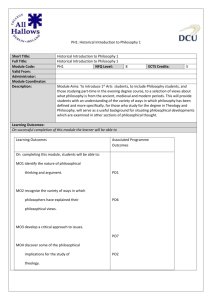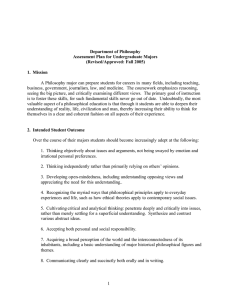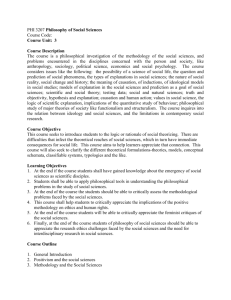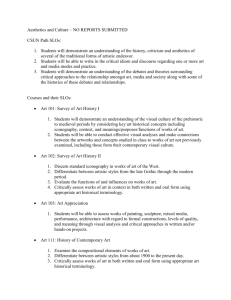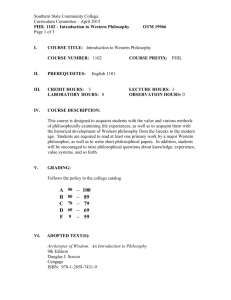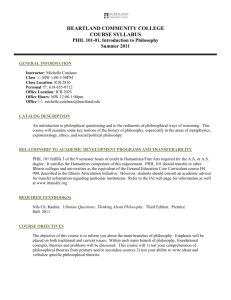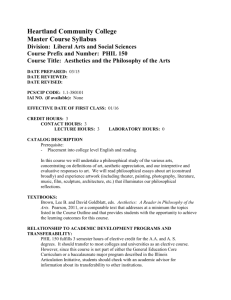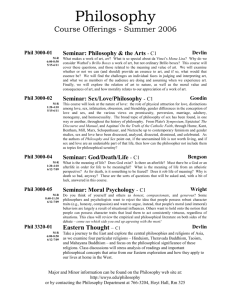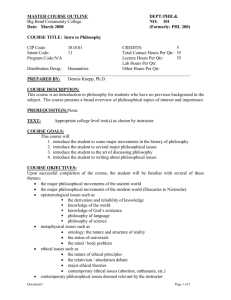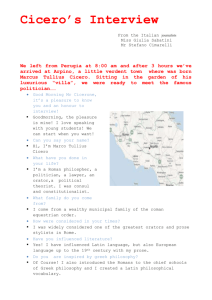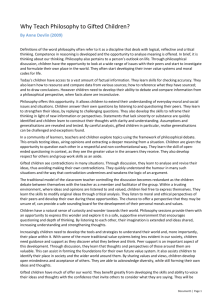PHIL296_Feb2006
advertisement
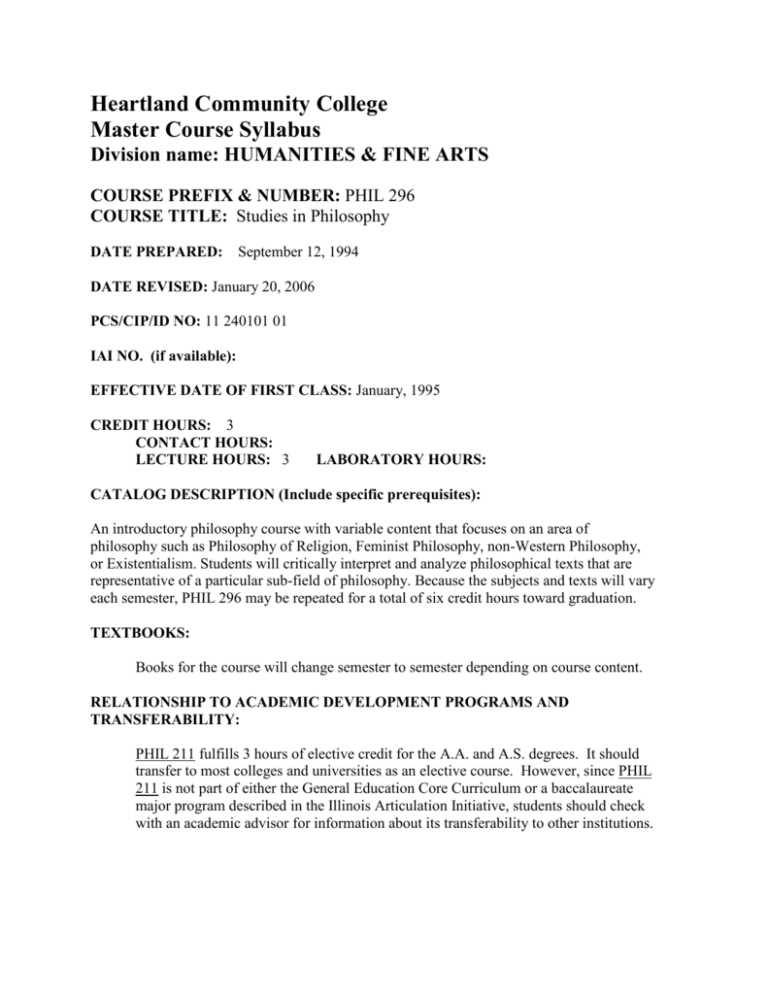
Heartland Community College Master Course Syllabus Division name: HUMANITIES & FINE ARTS COURSE PREFIX & NUMBER: PHIL 296 COURSE TITLE: Studies in Philosophy DATE PREPARED: September 12, 1994 DATE REVISED: January 20, 2006 PCS/CIP/ID NO: 11 240101 01 IAI NO. (if available): EFFECTIVE DATE OF FIRST CLASS: January, 1995 CREDIT HOURS: 3 CONTACT HOURS: LECTURE HOURS: 3 LABORATORY HOURS: CATALOG DESCRIPTION (Include specific prerequisites): An introductory philosophy course with variable content that focuses on an area of philosophy such as Philosophy of Religion, Feminist Philosophy, non-Western Philosophy, or Existentialism. Students will critically interpret and analyze philosophical texts that are representative of a particular sub-field of philosophy. Because the subjects and texts will vary each semester, PHIL 296 may be repeated for a total of six credit hours toward graduation. TEXTBOOKS: Books for the course will change semester to semester depending on course content. RELATIONSHIP TO ACADEMIC DEVELOPMENT PROGRAMS AND TRANSFERABILITY: PHIL 211 fulfills 3 hours of elective credit for the A.A. and A.S. degrees. It should transfer to most colleges and universities as an elective course. However, since PHIL 211 is not part of either the General Education Core Curriculum or a baccalaureate major program described in the Illinois Articulation Initiative, students should check with an academic advisor for information about its transferability to other institutions. COURSE OBJECTIVES (Learning Outcomes) After completing this course, a student should be able to: 1. Characterize a particular sub-field of philosophy by stating its boundaries or parameters. 2. Outline the historical development of the appropriate sub-field of philosophy. 3. State the historically dominant philosophical "problems" of the specific subfield of philosophy, what philosopher dealt with each of them, and why they have become viewed as "problems.” 4. Analyze critically the extent that a philosopher's identity and assumptions influence his or her perspectives or beliefs. 5. Communicate philosophical concepts and dialogue creatively and critically about philosophical issues. 6. Write critically and analytically about philosophical issues. COURSE/LAB OUTLINE: The topic outline for the course will change semester to semester depending on course content. METHOD OF EVALUATION (Tests/Exams, Grading System): Students will be evaluated by examinations, quizzes, papers, and on the basis of their participation in class discussions. REQUIRED WRITING AND READING: There will be 1 or 2 papers assigned, at least one of which will be a paper that enables students to do independent research. Some examinations and quizzes may require answering essay questions. Students will read philosophical books and essays that are centered on the topic of the course.
